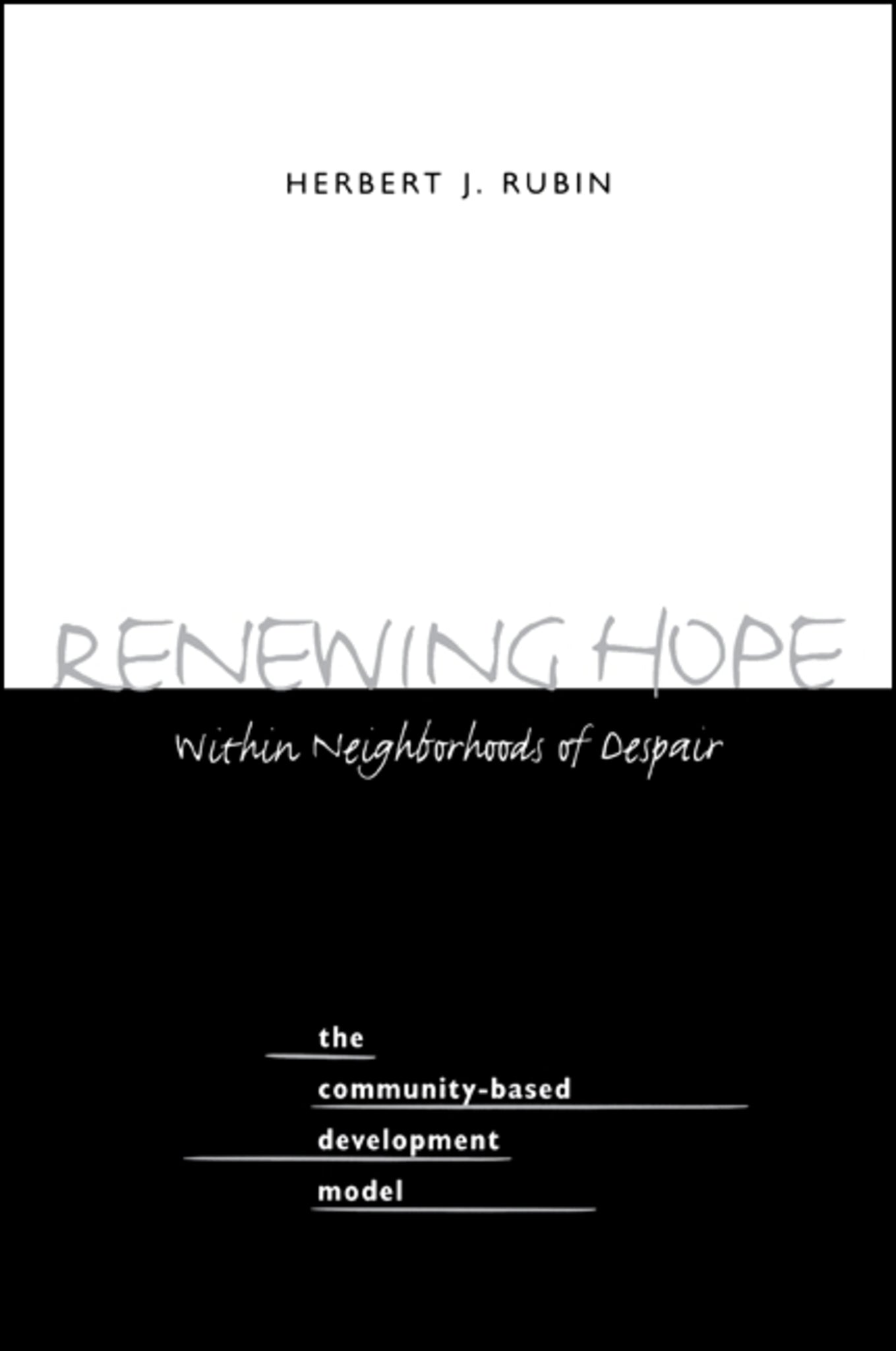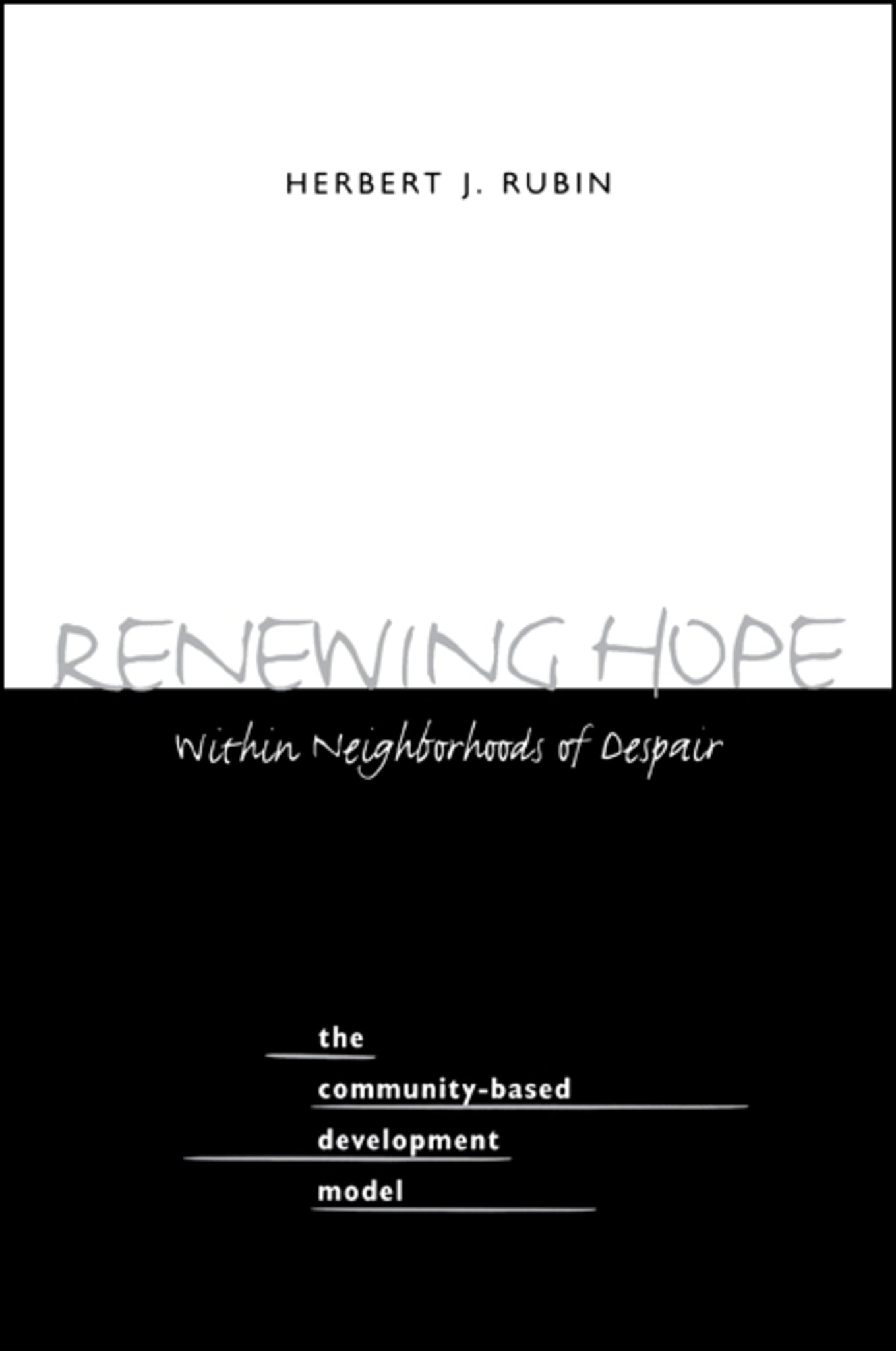We're sorry. An error has occurred
Please cancel or retry.
Renewing Hope within Neighborhoods of Despair

Some error occured while loading the Quick View. Please close the Quick View and try reloading the page.
Couldn't load pickup availability
- Format:
-
27 April 2000

Builds upon the narratives of community development activists to describe how they bring about affordable, quality housing, commercial opportunities and empowerment within poor areas.
Honorable Mention, 2003 Paul Davidoff Award presented by the Association of Collegiate Schools of Planning
Renewing Hope within Neighborhoods of Despair builds upon narratives provided by leaders of community-based development organizations (CBDOs) to describe how they bring about affordable, quality housing, commercial opportunities, and employment within poor areas. The book illustrates both the obstacles CBDOs face and how these obstacles are overcome, in part by leveraging resources for social change projects from foundations, government and intermediaries. Guiding the effort of the developmental activists is an organic theory that explains what can and should be accomplished. The material extends new institutionalism models of inter-organizational behavior.


"…this book is a 'must' for urban and community development researchers, practitioners, and activists and the libraries that serve them." — CHOICE
"Renewing Hope within Neighborhoods of Despair is an extraordinarily valuable book that is well situated within the scholarly literature and speaks to what is now a hot debate: what is the potential of community-based development organizations (CBDOs) to revitalize inner cities? No one has gathered this kind of ethnographic data on what exactly developmental activists do, how they view their activities, and how they attempt to surmount the contradictory pressures that press in on them. The book is a fascinating argument that those who control the resources do not necessarily control the agenda. As such, it is good medicine for a very cynical age." – Todd Swanstrom, coauthor of City Politics: Private Power and Public Policy
"I like the comprehensive nature of this book. It truly covers A to Z on this topic, something that has not been done to my knowledge. It is important, very innovative, and exciting." – Edward G. Goetz, coeditor of The New Localism: Comparative Urban Politics in a Global Era
List of Tables
Preface
1. Working in the Niche: The Community-Based Development Model
2. Negotiating an Environment for Community Renewal
3. Confronting Ideological Tensions
4. Responding to the Public Sector
5. Interacting with Intermediaries, Foundations, and Other Support Organizations
6. Being a Conscience and a Carpenter: An Organic Theory of Community-based Development
7. The Art of Leveraging
8. Building a Movement by Creating an Industry
9. Creating a Common Culture within the Community Development Movement
10. Traditional and Coalition Advocacy
11. Structuring Complex Interorganizational Systems
Appendix: Learning to Hear and Hearing to Learn: Discussions of Research Methodology
Notes
Bibliography
Index



